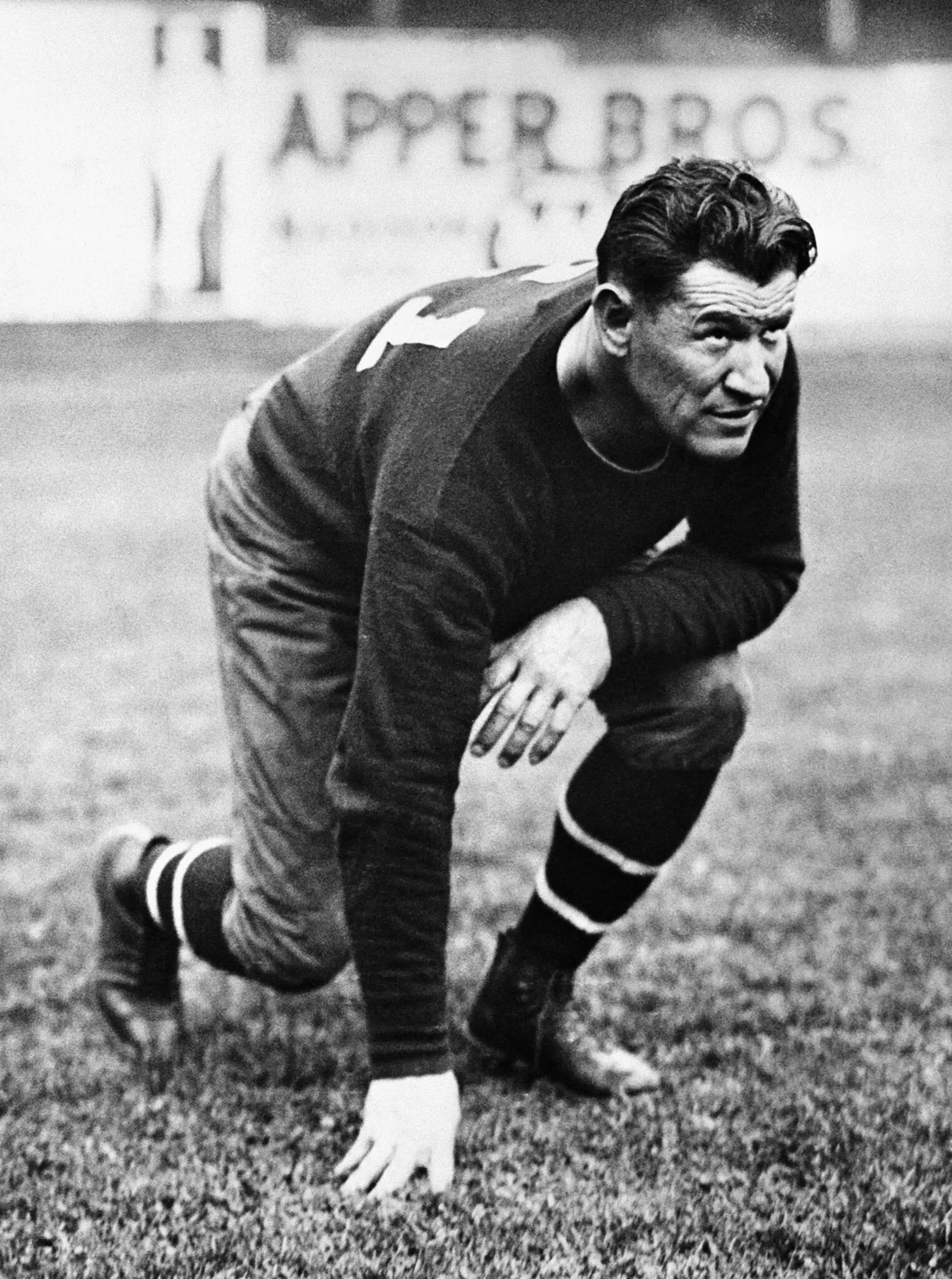
Before Deion Sanders or Bo Jackson, there was Jim Thorpe.
More than a century ago, Thorpe was a multisport star, excelling in football, baseball and lacrosse, and winning gold medals in the decathlon and pentathlon at the 1912 Stockholm Games. But as a Native American, he faced what many historians considered racial bias when those medals were stripped because he had previously earned modest payment for playing baseball, which the International Olympic Committee said violated amateurism rules.
The IOC agreed to return Thorpe’s medals in 1982, almost 30 years after his death, and last year President Joe Biden awarded him the Presidential Medal of Freedom, which was accepted by Thorpe’s granddaughter.
A new project by the History Channel, “Jim Thorpe: Lit by Lightning,” explores the triumphs and injustices of Thorpe’s athletic career. The two-hour documentary was directed by Chris Eyre, a Native American filmmaker, and produced by Uninterrupted, a media company co-founded by LeBron James.
In an interview with The New York Times, Eyre discussed the creative process and how he sees Thorpe’s legacy playing out today. Excerpts from the conversation have been edited for length and clarity.
Q: Why was now a good time to do this project?
A: I had heard about Jim Thorpe ever since I was a kid, and I felt like his name — I didn’t want it to fade from the consciousness because he’s one of the greatest Americans that ever lived and he’s the greatest athlete ever. I jumped at getting to make something.
Q: How did you try to strike a balance for the tone to be educational but not overly academic?
A: As the filmmaker, it was all about the person behind the victories, and as a Native person, my point of view was purely about, Who is this person? I think that we’ve found a new angle on Jim Thorpe, which was: He was a very humble servant of sports. He didn’t do it for the social media and the accolades, and he didn’t do it for the money because there was no money. He became the first celebrity athlete before the money and the accolades that we see today, so he did it for different reasons.
Q: What was the challenge of trying to find a new angle on someone whose life has been reported on extensively?
A: I didn’t want to tell a story about a person who was victimized by bias. I looked at this story and said, “People need to know these things about his facts in terms of sports.” What happened to him or where he came from was secondary to the fact that he just persevered.
Q: Thorpe experienced racist media coverage and had his Olympic medals stripped. Do you see any parallels with athletes today compared to 100 years ago?
A: It was a different time and place, and I think the similarity is that sports is the great vehicle for people finding their way. He certainly channeled sports as his means of survival, and I think that’s why he became the greatest ever is because he had so much in his social bag. He came from a time where people were trying to exterminate Native Americans. If he wouldn’t have found sports, like a lot of other athletes, they didn’t have another place to turn.
Q: A group of Native Americans are vying to compete as their own lacrosse team at the 2028 Summer Olympics in Los Angeles. How does Thorpe’s legacy help pave the way for that possibility?
A: I think that’s a foot forward in terms of the diversity and allowance of what we want, which is these are tribal nations within this nation. If they want to bring their traditional sport to the Olympics, I think more power to them. I think that’s what Jim Thorpe’s story was all about: passion and tenacity.


 PREVIOUS ARTICLE
PREVIOUS ARTICLE
